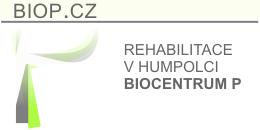

O Biocentru P
To Buy Doxycycline Online Visit Our Pharmacy ↓
 Exploring Doxycycline's Role in Preventing Malaria While Traveling
Exploring Doxycycline's Role in Preventing Malaria While Traveling
Doxycycline, a common antibiotic, quietly serves as a formidable barrier against malaria, an insidious disease that claims the lives of hundreds of thousands each year. Prescribed as a prophylactic tool, doxycycline operates in the background, often uncredited for its critical role in safeguarding travelers from the potentially fatal reach of Plasmodium parasites. The medication's utility in preventing malaria has lent it a place in the travel kits of many venturing into high-risk areas, affirming its importance in the global fight against the disease.
The adoption of doxycycline as an antimalarial agent is largely due to its effectiveness and affordability. Versatile enough to tackle a range of bacterial infections, its prowess extends to keeping at bay the various strains of malaria that haunt tropical and subtropical regions. Easily administered and with an ability to provide protection in regions with drug-resistant strains of malaria, doxycycline stands as a silent guardian, constantly at the ready to defend against the perils of this ancient malady.
The Mechanism Behind Doxycycline's Protective Powers
Doxycycline, a member of the tetracycline family of antibiotics, operates as an effective prophylactic agent for malaria due to its ability to inhibit protein synthesis within the parasite. When the Plasmodium parasite, responsible for malaria, enters the human bloodstream through a mosquito bite, doxycycline acts by targeting the ribosomal units of the parasite. By binding to the 30S ribosomal subunit, it interferes with the production of proteins that are essential for the parasite's growth and replication within the red blood cells.
This disruption in protein synthesis prevents the parasite from multiplying and spreading throughout the blood, effectively stopping the infection before it can progress to the symptomatic stages of malaria. As a broad-spectrum antibiotic, doxycycline not only blocks the development of malaria-causing parasites but also provides defense against a range of bacterial infections, which can be particularly beneficial in regions with limited medical facilities. Regular intake of doxycycline creates a hostile environment for the parasite, thus offering a shield of protection for individuals in malaria-endemic areas.
Navigating the Dosage and Timing for Prophylactic Success
When considering the use of doxycycline for malaria prevention, understanding the correct dosage and timing is crucial. For adults, the typical dose is 100 mg daily, starting one to two days before entering a malaria-endemic area, throughout the stay, and continuing for four weeks after leaving the area to ensure that any late-developing parasites are eradicated. It is important to take the medication with a full glass of water to minimize the risk of esophageal irritation and to take it at the same time each day to maintain consistent blood levels.
Compliance with the prescribed regimen is essential for the drug's effectiveness. Doxycycline must be taken exactly as directed; missing doses can reduce the level of protection and increase the risk of contracting malaria. It's recommended to pair the medication routine with daily habits or set reminders to avoid missed doses. Travelers with certain health conditions or those taking other medications should consult their healthcare provider to ensure doxycycline is safe for them and does not interact adversely with their other medications.
Potential Side Effects: Weighing Risks Against Malaria Protection
While doxycycline is a formidable ally in the fight against malaria, it is not without its potential side effects. Travelers considering doxycycline must be informed of the various adverse reactions that could occur. Common side effects include photosensitivity, leading to sunburns even with minimal sun exposure, and gastrointestinal disturbances such as nausea, vomiting, or diarrhea. Less commonly, doxycycline could cause esophagitis or candidiasis, prompting the need for preventative measures such as taking the medication with plenty of water and staying upright for at least 30 minutes afterward.
When determining whether to use doxycycline for malaria prevention, one must balance the benefits against the risks of side effects. For some, particularly those visiting regions with high malaria transmission rates, the protection offered by doxycycline far outweighs the inconveniences of its side effects. However, travelers with specific health profiles or taking other medications may find the risks more pronounced. Consulting with a healthcare provider is crucial to evaluate personal health factors and ensure that the chosen prophylactic aligns with the individual's overall health strategy.
Doxycycline Vs. Other Antimalarial Medications: a Comparison
Doxycycline, a time-tested tetracycline antibiotic, stands its ground in the battle against malaria when compared to other preventive medications. Its draw lies not only in its efficacy but also in its cost-effectiveness, making it a go-to for budget-conscious travelers. Unlike atovaquone-proguanil (Malarone) which is taken daily and starts just 1-2 days before exposure, doxycycline requires initiation 1-2 days prior to travel, continued through the duration of the stay, and for 4 weeks after departure from the malarious region. Chloroquine, once a frontline defense, now grapples with widespread resistance issues, rendering doxycycline a more reliable alternative in many parts of the world.
On the other hand, mefloquine, another antimalarial, is dosed weekly but is notorious for its neuropsychiatric side effects, which can be a deal-breaker for many. Doxycycline, while generally well-tolerated, does have its own side effects, including photosensitivity and gastrointestinal discomfort. Moreover, concerns over long-term antibiotic use like altering gut microbiota and potential for antibiotic resistance must be considered. Each option carries its own profile of benefits and drawbacks, making personal medical history and specific travel destinations key factors in determining the most suitable prophylactic agent.
Practical Tips for Malaria Prevention Beyond Medication
While antimalarial medication is a critical component in the fight against malaria, comprehensive protection involves a multifaceted approach. To minimize the risk of infection, travelers should use insect repellent with DEET, picaridin, or oil of lemon eucalyptus, particularly during peak mosquito activity hours from dusk to dawn. Sleeping under long-lasting insecticidal nets (LLINs) provides an added layer of defense, especially in areas with high transmission rates. The utilization of clothing treated with permethrin, a powerful insecticide, can also offer additional protection when venturing into mosquito-prone environments.
Personal and environmental precautions play an essential role as well. Avoiding areas with standing water where mosquitoes breed, ensuring rooms are fitted with intact screens, and using air conditioning when available can significantly reduce the chances of mosquito bites. Educating oneself about the destination's malaria risks and peak transmission seasons allows for informed decisions about travel timing and the necessity of rigorous preventive measures. Combined, these non-pharmaceutical strategies create a comprehensive shield that complements the use of doxycycline, forming a robust barrier against malaria for the traveler.
https://infobuyblo.com https://www.cbamedicine.com/wp-content/uploads/2022/08/png/clomid.html https://imed.isid.org/wp-content/languages/themes/po/augmentin.html





